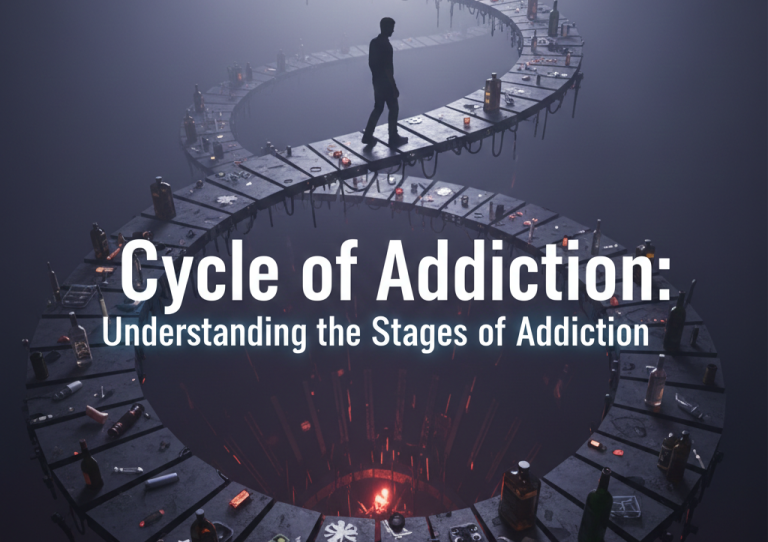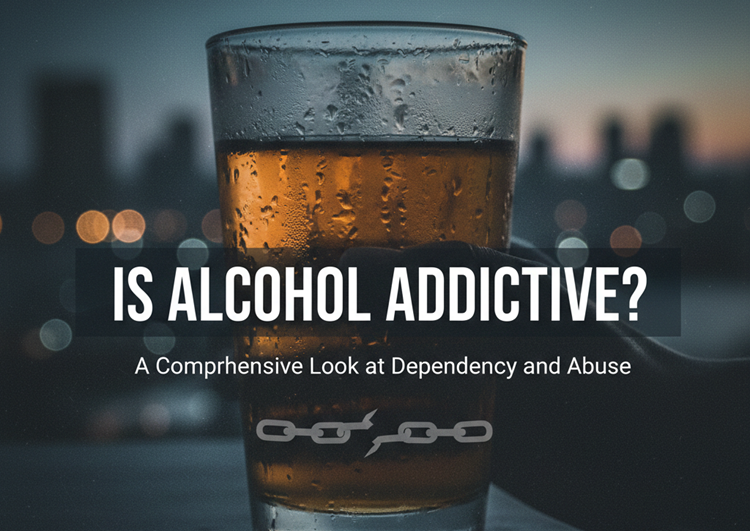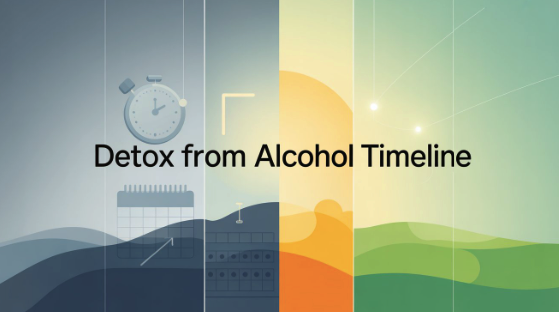Alcohol is one of the drugs that people consume most in the world. It can be easy to dismiss moderate drinking as safe, but its consequences on the human body are strong and far-reaching and are often unappreciated. From that first drink to its repeated use, alcohol interferes with many of the body’s functions and organs. We discuss what happens to the body due to alcohol in the short term and the long term, guiding you with the basics.
Understanding How Alcohol Enters and Affects the Body
After a person consumes alcohol, it moves through the digestive tract and quickly enters the blood through the stomach and small intestine. After being absorbed, it moves around the body and is able to get to the CNS and other organs.
Metabolizing alcohol is mainly handled by the liver. It uses alcohol dehydrogenase (ADH) and acetaldehyde dehydrogenase (ALDH) to break down ethanol. But since the liver can’t break down alcohol too fast, having more than it can handle in an hour can lead to dangerous levels of toxicity and drunkenness.
Short-Term Effects of Alcohol on the Body
1. Central Nervous System (CNS) Suppression
Alcohol acts as a depressant which slows down how the brain functions and communicates. Sometimes, the short-term results include:
- Slurred speech
- Difficulty with motor coordination
- Shorter time between your brain sending a message and your muscle moving
- After feeling euphoria, there is drowsiness afterwards.
- Lowered inhibitions
A higher BAC level causes a person’s brain and body to function poorly which increases the chances of accidents, injuries, and blackouts.
2. Cardiovascular Effects
In the short term, alcohol may bring the following side effects:
- An increased heart rate.
- Blood pressure that rises for a short time
- Blood vessels that expand throughout the body, creating warmth or a flushed look
Yet, using caffeine in excess can cause the heart to beat in an unusual way and may cut down the amount of oxygen that reaches important body parts.
3. Gastrointestinal Distress
Alcohol contacts the stomach and intestines, which causes them irritation.
- Nausea and vomiting are common.
- Feeling of heartburn and the condition called acid reflux
- Ulcers in the stomach caused by using pain relievers for a long time
It often leads to acute pancreatitis, and this risk is especially high after heavy binge drinking.
Long-Term Effects of Alcohol on the Body
1. Liver Damage
Chronic drinking heavily stresses the liver, which often ends up causing conditions including:
Excess buildup of fats in the liver is called fatty liver disease or hepatic steatosis
- Alcoholic hepatitis
- Fibrosis
- Cirrhosis
These health problems may be permanent and very serious, and cirrhosis in particular can raise the likelihood of liver cancer.
2. Brain and Nervous System Impairment
When drugs are used for a long time, it may cause brain changes and create nerve-related problems such as:
- Memory loss
- Difficulty concentrating
- Poor decision-making
- The main issue is peripheral neuropathy (nerve damage)
Another consequence of chronic alcoholism is Wernicke-Korsakoff syndrome which develops from not getting enough vitamin B1 (thiamine).
3. Increased Cancer Risk
The International Agency for Research on Cancer evaluates alcohol as a group 1 carcinogen since it is linked to forms of cancer, including:
- Liver
- Breast
- Colorectal
- Esophagus
- Mouth and throat
There is a greater risk if alcohol use is high and goes on over a longer period.
Effects on the Cardiovascular System
Earlier research stated that modest drinking could keep the heart healthy, but studies now say that all forms of drinking carry some risk. Long-term effects may consist of:
- High blood pressure (hypertension)
- Cardiomyopathy is the condition of having a weakened heart muscle.
- Stroke
- Hardening of the arteries, called atherosclerosis
They are linked to a greater chance of heart attacks and sudden death from heart disease.
Reproductive and Hormonal Effects
Hormonal balance and reproductive health are both harmed by the consumption of alcohol. In men, it could cause:
- When testosterone levels fall.
- Sperm levels are below normal.
- Erectile dysfunction
Women can develop the following symptoms due to urinary tract infections:
- When a woman has periods that come at different intervals.
- Infertility
- The chance of miscarriage is greater with this type of pregnancy.
Using alcohol while pregnant can result in Fetal Alcohol Spectrum Disorders (FASD), which continue to affect the child’s development and behavior as they grow.
Weakened Immune System
Regular drinking of alcohol causes the immune system to become weak by limiting the production of:
- Cells of the white blood cells
- Cytokines
- Antibodies
Because of this, people are more likely to get pneumonia and tuberculosis and suffer from viruses like COVID-19.
Mental Health and Emotional Impact
Despite easing some tension, drinking alcohol over time causes:
- Depression and anxiety
- Mood swings
- Irritability
- Suicidal thoughts
Many times, alcohol misuse is found along with dual diagnoses in which people have both substance use and mental health challenges.
Alcohol Addiction and Dependence
Alcohol tolerance builds up with frequent drinking, which often leads to dependence. An alcohol use disorder (AUD) can show specific symptoms which are:
- Intense cravings
- The inability to stop or limit drinking
- Not meeting what is expected
Some people experience symptoms when they stop using such products as
- Shaking (tremors)
- Seizures
- Delirium tremens (DTs) can be a dangerous problem that occurs after stopping alcohol use
Effects on Skin and Appearance
Alcohol pulls moisture away from the skin and prevents your body from absorbing vitamins efficiently, which causes:
- Patchiness and flaking
- Swelling is often seen just below the eyes
- When your skin gets rosacea or acne breakouts
- damaged capillaries appearing on the nose and cheeks
Longevity is reduced by alcohol over time as it causes extra stress on cells and reduces natural collagen.
Sleep Disruption
Alcohol may help a person fall asleep, but it interferes with sleep by cutting down REM sleep and resulting in extra awakenings at night. As a result of this, it leads to:
- Tiredness during the day
- Mood disturbances
- Cognitive decline
Used over a long period, alcohol starts losing its ability to make you sleep which can make insomnia and sleep disorders worse.
Is It Too Late to Reverse the Damage?
The benefits of not drinking alcohol can be very noticeable for one’s health. The liver can recover fast and the brain, thanks to neuroplasticity, will heal little by little. Other advantages are:
- Elevated mood
- Improved sleep
- Greater ability to fight off diseases
- Clearer skin
- Extra energy and weight loss
Having support makes recovery more likely.

Take the First Step Toward Recovery
If a close one or you use alcohol in a problematic way, you are not alone. Asking for help takes real courage and can greatly change your life. Orlando Treatment Solutions provides the kind of care that suits what you need. Our team guides detox, therapy, and all parts of recovery.
Call us at (321) 415-3213 now to get better and start the path to being sober.



























